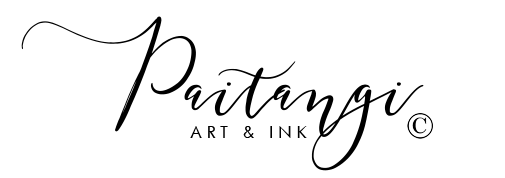
Paitangi Ostick - Artist
Paitangi Ostick was never meant to be your average little girl; from very early in her young life there were signs.
Her mother is Māori and her father was a Yorkshire-man but it wasn't the bi-culturalism that singled her out. It was more that around the age of eight, she loved to carve. She'd 'borrow' her fathers engineering files and would chisel away on anything she could find when she wasn't drawing or making collage out of lolly paper or whatever she could lay her active hands on. By the time she was 13 she was in her version of heaven.
"Dad bought me my first Dremel and I had a go at everything; bone, wood, ostrich eggs, stone, whatever was available and it just didn't stop.''
Her Māori mother was of a generation whose cultural identity was somewhat oppressed, particularly in school. She tended not to identify herself as Māori so its somewhat ironic that Paitangi's carving was encouraged by her English father. Her maternal grandfather, though, taught her about Māori medicines and would speak to her in Māori as they wandered through the bush looking for healing plants. Years later when she moved to Waitangi she found herself remembering the language almost subliminally. Today Paitangi keeps Te Reo alive by composing waiata and you will find her often singing beautiful songs whilst tattooing her mesmerised clients.
Paitangi went to Otahuhu College in Auckland and passed Bursary art, even if her spirit of non conformity constantly questioned why she had to draw this way or paint that way or why she couldn't mix certain mediums; she simply couldn't understand the creative restrictions being placed on her and in some ways she still doesn't accept them. Perhaps she was always destined to be singular, to exhibit her spirit both literally and figuratively.
When her children were little she taught herself to knit and then made her own patterns and stitched her own designs. The kids will now tell you they went to sleep at night with the sound of the carving machine whirring away in another room; the urge to express the creative was always present.
It's probably why she has become one of the few woman tattooists in the Far North and one of only a handful in New Zealand. It hasn't been an easy road to travel and there has been a palpable resistance from a number of quarters, even within her own tribal connections and ethnicity of Ngati Wai, Ngati HIne and Ngapuhi.
"There are those who say a woman shouldn't carve or tattoo and the sad thing is other tattooists don't always offer support because I'm a woman. It got to me for a while, and to my kids, but I've learned to let that go.
Paitangis' moko represents her intrinsic soul and as if being a woman tattooist isn't enough to establish her individualism, her moko surely is - it was chiselled by hand.
Clients from around the world arrive as strangers and time spent in the studio is often filled with tears and laughter. When they leave the studio they leave as a friend and take with them a small part of Māori culture and a large part of Paitangi and Art and Ink.

